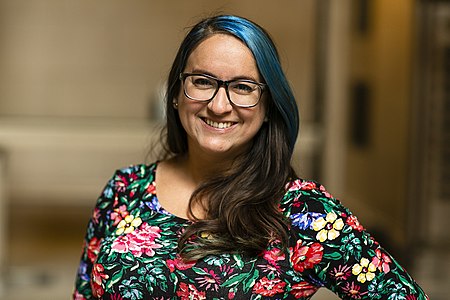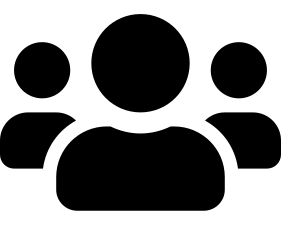Education/About/Education Team
Appearance
From Outreach Wiki

Role
[edit]We work with people in the Wikimedia movement, educational institutions, policy makers, and others to help people around the world engage with Wikimedia projects to learn and grow throughout their lives. We want to build a world where knowledge is available and equitable for everyone, and people have the skills and information they need to thrive in the digital age.
Meet the team
[edit]-
Nichole Saad
Senior Program Manager, Education -
Melissa Guadalupe Huertas
Senior Program Officer, Education -
Sailesh Patnaik
Program Officer, Education -
Sseruwagi Abdallah
Program Assistant, Education
Current Projects
[edit]- coming soon*
Past Projects
[edit]
Talk to us!
[edit]-
Email us: education
 wikimeda.org
wikimeda.org
More about who we are
[edit]The education team recently sat down to discover more about each other. Here is some of what we learned:
What are the commonalities among team members?
- We are multilingual
- We value Open Knowledge
- We are visionaries
- We are global citizens
- We are collaborative remote workers
- We have all worked with emerging communities
What are the unique attributes of the team?
- Among the team members we can have conversations in Spanish, Odia, French, Mandarin Chinese, Arabic, Hindi, Bengali, Bahasa Indonesia, Bahasa Malay, English
- We have lived and worked in 12 different countries, mostly in the Global South (and traveled to many many more!)
- We have diverse and interesting hobbies (reading, traveling, ukulele, guitar, coin collecting)
- We have a youthful energy
Want to know more about the team? Join our office hours!
Guidelines for inclusion by the education team
[edit]- We require any formal partners to ensure there is gender equity among project participants as well as among staff and volunteers.
- We foster leadership among the Wikimedia & education community that is representative of the diversity of the movement & the world.
- We support partners to reduce barriers to participation for underrepresented groups.
- We prioritize efforts that reduce knowledge gaps on Wikimedia projects.
- We ensure differently abled people are able to access and use any materials we produce, and are able to participate in any activities we sponsor.
- We incentivize translation of the materials we produce to ensure that information is accessible in all UN languages, in addition to as many other languages as possible.
- We ensure there are multiple touch points for people to receive support in different regions and languages.





